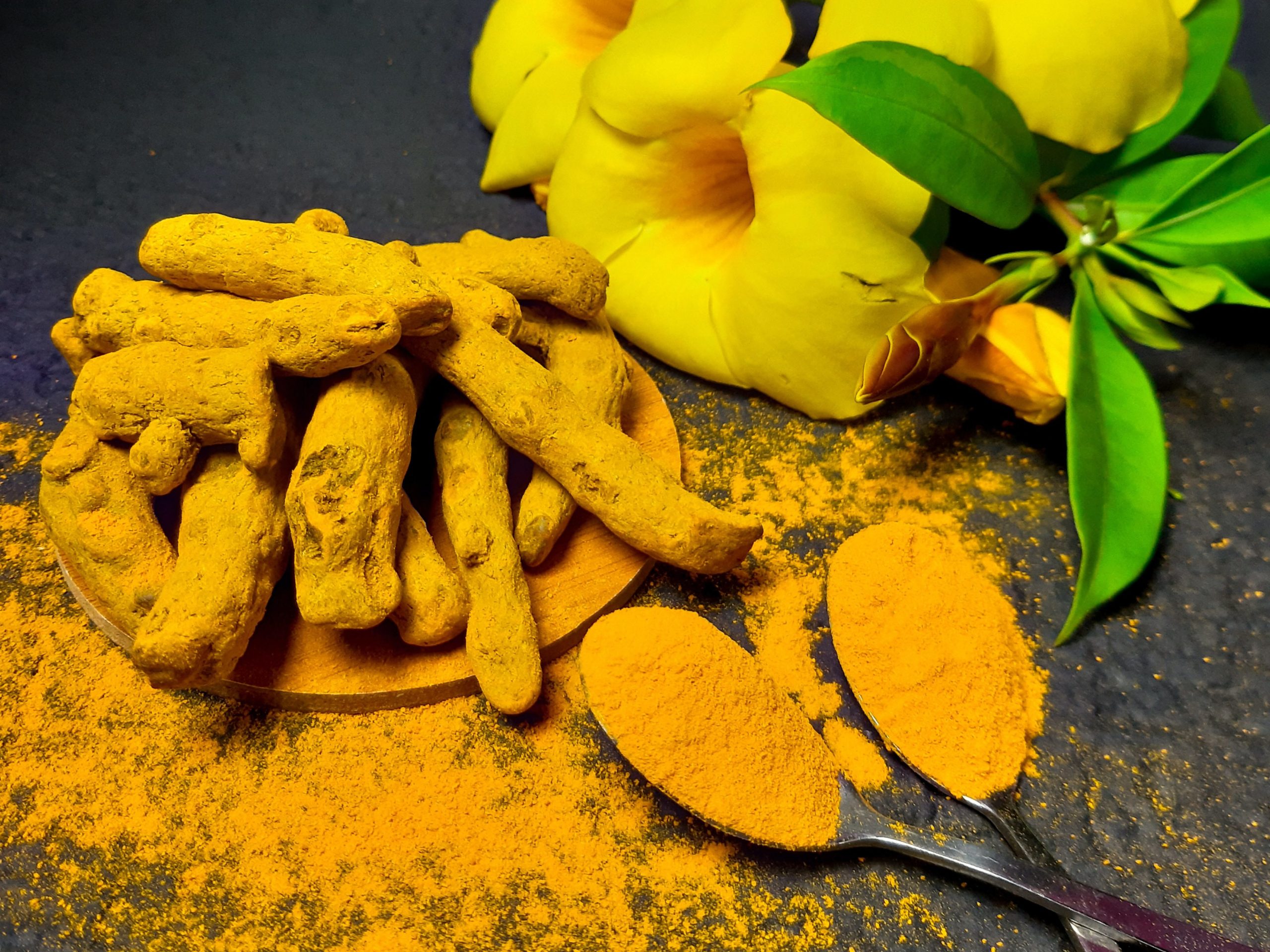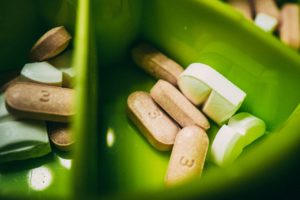Everything You Need to Know about the Best Ingredient for Health – Turmeric Benefits, Tea Recipe, and More
Turmeric, a spice native to Southeast Asia, maybe the best natural ingredient for treating ailments in the body and mind. It has been extensively studied and research has shown just how powerful curcumin, the active ingredient in turmeric, really is.

Curcumin has many benefits for the body, but only if used right. Here is a complete guide to this golden spice, including how to use it effectively, health benefits, risks, and more!
What is Turmeric
Turmeric is a plant in the ginger family that is native to Southeast Asia, mostly grown in India in modern times. It is the main ingredient in curries that give it its bright yellow coloring and has a warm, slightly bitter taste.
It has been used historically to treat conditions of the lungs, joints, skin, and gut.
In modern times, this spice, particularly the active ingredient curcumin, has been used for treating digestive issues, infections of the respiratory tract, allergies, liver issues, arthritis, and even depression and many more issues.
Are any of these claims true? Let’s look at what the science says about turmeric.
Science-Based Health Benefits of Turmeric
The research overview has found that curcumin, the active ingredient in turmeric, is a powerful antioxidant with strong anti-inflammatory effects.
Inflammation can lead to many issues in the body including degenerative diseases like Alzheimer’s, heart disease, cancers, and more. Studies show curcumin has huge anti-inflammatory properties which are key in the prevention of chronic illnesses like those listed above. The antioxidant properties can also help fight free radicals in the body that cause damage to proteins and DNA.
Preliminary studies with animals have found curcumin to be vital in brain health as well, protecting the brain’s proteins and neurons. This may also boost memory and learning ability, but more research needs to be done. Some research even suggests curcumin can boost serotonin and dopamine, feel-good chemicals in the brain. This makes it possible to reduce mental illness, such as anxiety or depression, with this natural supplement.
Other studies have found curcumin to be a potential ally in heart health, improving cardiovascular conditions greatly.
In terms of cancer-related research curcumin also has potential. Curcumin causes death to cancerous cells, reduces tumors, and slows the spread of cancer, though high amounts are needed, about 4 grams a day according to this study.
Arthritis also seems to improve with the consumption of curcumin.
The Issue With Turmeric
It just isn’t well absorbed by the body. Like, at all. Research has focused on ways to make curcumin more bioavailable but it’s tough.
Introducing black pepper (here’s the science)! It contains the bioactive compound piperine, which is an ingredient that relieves nausea, aids in digestion, and has anti-inflammatory properties. Most importantly though, when combined with curcumin, it increases the absorption of both active ingredients in the body.
How to Make Liquid Gold (Turmeric Tea)
Here is the simplest recipe to make liquid gold. Enjoy hot or cold!
- Boil 1 cup of water
- Add 1 teaspoon of turmeric and ½ teaspoon of pepper
- Stir
- Let it rest for about 10 minutes
- Add sweetener to taste
You can also add a teaspoon of oil, such as coconut, olive, avocado, or heavy cream, to the tea to increase its adsorption even more. You can make it creamy by using milk, cream, or a milk substitute like almond milk, or you can make it tangy by adding lemon juice and sweetener.

Other Uses in Food
Additionally, it can be used as a natural source of color as it is very pigmented with little flavor if used in small amounts. Just add about ½ a teaspoon to any cake recipe and get all that yellow coloring without any change to taste.
It can also be used in soups, curries, and savory meals as long as it is paired with black pepper to ensure you’re absorbing the curcumin into the body.
Other Uses in Applications
Turmeric can be made into a paste and used for skin conditions. Just add a teaspoon of turmeric with water and form a spreadable mixture. Use with caution as this does stain!
Some evidence suggests that it can help improve redness and even skin tone. It may even reduce the appearance of hyperpigmentation, dark spots, and discoloration. Again, and I cannot say this enough, it does stain.
Supplements
While there are many supplements available, it is always better to get your intake from natural sources. As amazing as the benefits of curcumin are, too much is not always better.
If you do choose to use a supplement, make sure it is one formulated with black pepper. This combination has been shown to increase curcumin absorption greatly!
Side Effects of Turmeric
For now, turmeric and curcumin products are safe. Turmeric is safe in doses of up to 8 grams a day for two months and 3 grams a day for up to 3 months.
However, curcumin is not absorbed well by the body, and changes in this may have positive and negative effects. Current research aims to try to increase the bioavailability of curcumin, so we’ll just have to wait and see for this one.
There is little research on its effects on breastfeeding individuals and should be avoided in high amounts (higher than amounts in food) while pregnant.
The Takeaway
Turmeric is an awesome ingredient that may have many health benefits. It may increase mental health, heart health, boost memory while protecting against free radicals, cancer, arthritis, and more. Take it in the form of a daily tea for the best consumption of this liquid gold.
Remember that health starts from within! Daily habits and choices all add up to create an experience that nourishes wellbeing. Fitness is a journey that is about progress, not perfection. Eat well but try not to restrict yourself. Give yourself and your body good building blocks to nourish the mind and make good choices. Take care of mental wellbeing and try to move daily with exercises.
And don’t forget about gut health! The gut microbiota is incredibly important as it affects mental wellbeing, physical fitness, skin health, and even your metabolism!
Get all those microbiota gut health resources for free here! Learn what foods to eat, which to avoid, and how to make the most of a balanced gut.





